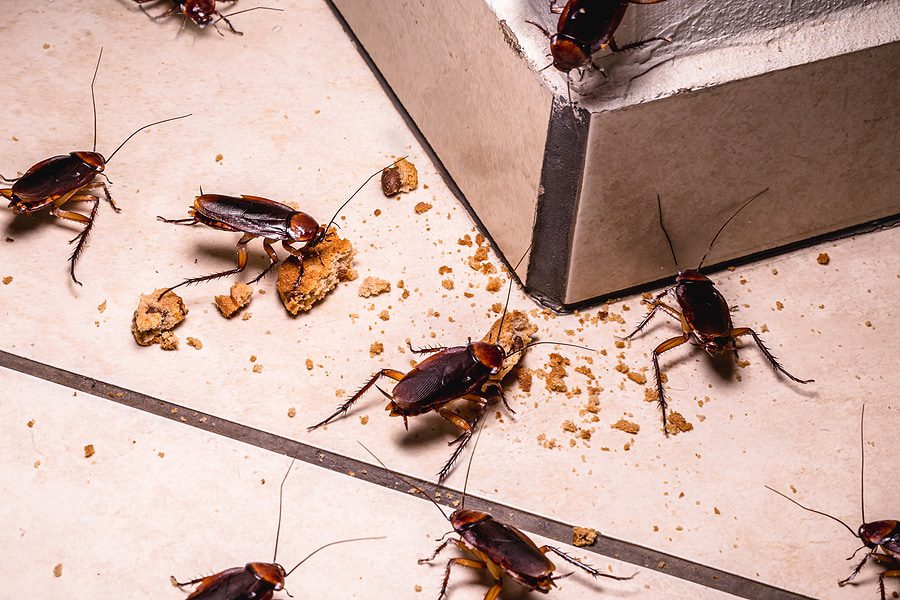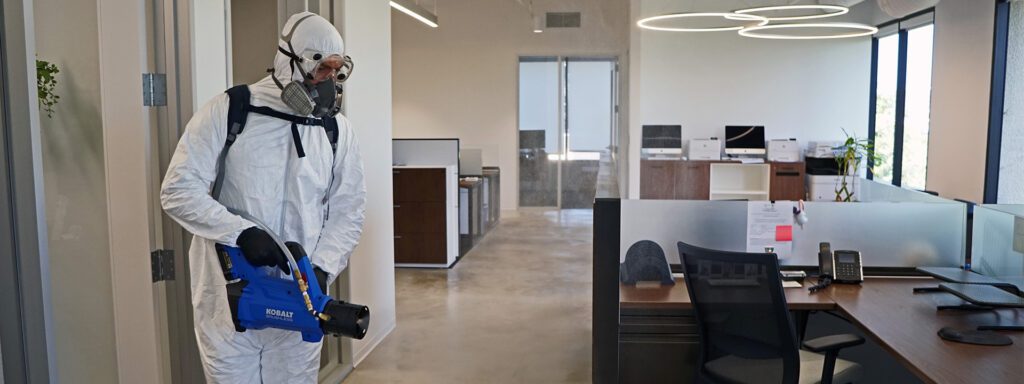
Get Trusted commercial pest Control Services in Kent, Washtenaw, Jackson & Eaton County, Michigan
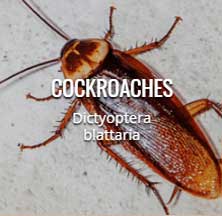
Your Best Choice for Commercial Pest Control
You put a lot of time and money into your business. Keep staff and your facility safe and protected with pest control from Wolverine Pest Services. We have over 20 years of experience handling commercial property pest control.
Our veteran and family-owned company has built its reputation on faith, honesty, and fair, competitive pricing. You can depend on us if you have pest infestation issues, such as those with rodents. We are licensed and insured in the state of Michigan and offer standard treatments as well as green/organic products.
You can also choose Integrated Pest Management (IPM). The goal of the IPM method is to minimize the potential risks to humans, property, and the environment by using more ecological pest control methods.
With over 20 years of experience, you can depend on our team for complete commercial pest control. We offer a 30-day guarantee and return within the first 30 days if your problem re-occurs. Call us today at (517) 999-5008 for your free estimate.
Call for a FREE quote over the phone! (517) 999-5008
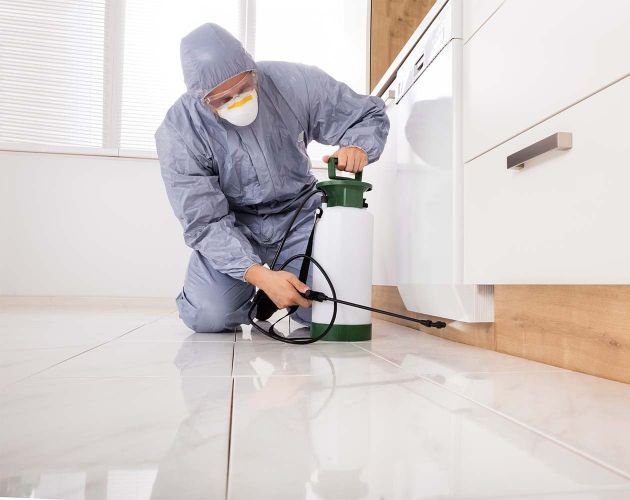
Commercial Pest Control Services
• 30-Day Guarantee
• Organic Products Available
• Free Quotes
(517) 999-5008
“Wolverine is a small, growing company in the greater Lansing area that I use exclusively for all my pest control needs as a property manager…I feel theyre a great asset to our contractor pool. They are always quick to follow up on all their work, should there ever be any concern, and generally have a high first-time-through quality percentage. Would recommend them for service to anyone in need of pest/mice control.”
Protecting Your Business from Pests
The last thing you need for your business is a bad review because your customers experienced a pest issue. Whether you have roaches, ants, bedbugs, mice, or other pests, you must get commercial pest control services to get them under control for the good of your business. Get a permanent solution with pest control services from our team. Whether you choose our regular service or IPM, we can make sure your business is pest-free, no matter what kind of pests you’re experiencing. Get a permanent solution with pest control services from our team. Whether you choose our regular service or IPM, we can make sure your business is pest-free, no matter what kind of pests you’re experiencing.
Get Started With Commercial Pest Control
Our faith-based company has been helping business owners with pest solutions for over 20 years. Call us today at (517) 999-5008 to learn more about how we can help. We can even provide you with a free estimate over the phone.
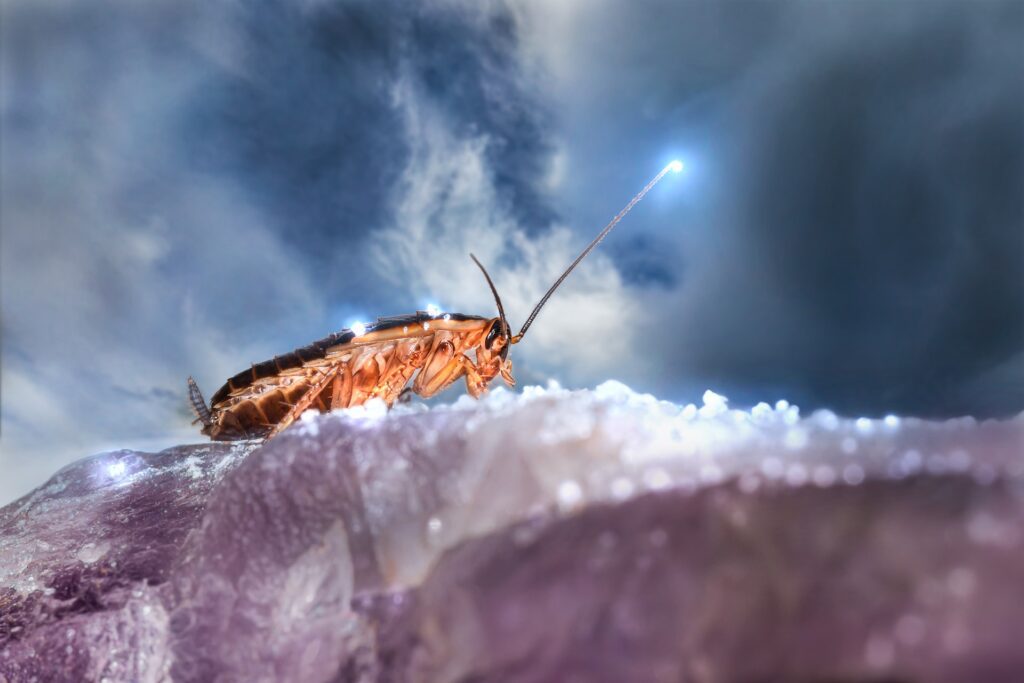
IPM techniques include:
1. Prevention: The goal of prevention is to eliminate or reduce pest problems before they occur. This includes reducing conducive conditions and preventing pest entry or spread.
2. Monitoring: Monitoring is the process of regularly observing pests and environmental conditions to determine if pest control is needed. Monitoring helps to determine the presence of pests, their damage levels, and their population trends.
3. Cultural practices: Cultural practices are non-chemical methods of controlling pests. Examples include crop rotation, the use of resistant varieties, and the selection of suitable planting sites.
4. Biological control: Biological control is the use of natural predators, parasites, or pathogens to reduce pest populations.
5. Chemical control: Chemical control is the use of pesticides to reduce pest
populations. Pesticides should be used only as a last resort and in a responsible
manner.
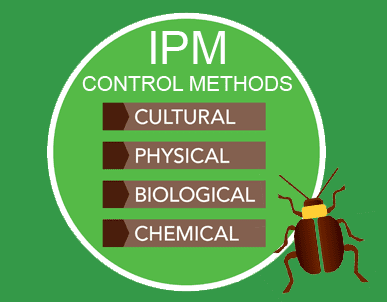
History
In the mid-1960s, entomologists at the University of California, Berkeley, and the University of California, Riverside took the concept of supervised insect control a step further. They proposed an Integrated Control approach to managing insect pests. This approach was based on the idea that insect pests should be managed by combining multiple tactics, such as biological control, cultural control, host-plant resistance, and insecticides, in a way that minimized economic, health, and environmental risks. The term Integrated Pest Management was first used in a paper presented at a conference in February 1967. The paper was authored by four entomologists: R.L. Metcalf, R.L. Rabb, C.B. Huffaker and
P.S. Messenger. The paper was presented at a meeting of the Ecological Society of America and was entitled The Concept of Integrated Control. [7] The authors defined integrated pest management as the careful consideration of all available pest control techniques and subsequent integration of appropriate measures that preclude or minimize the use of pesticides and other forms of the environment.
Applications
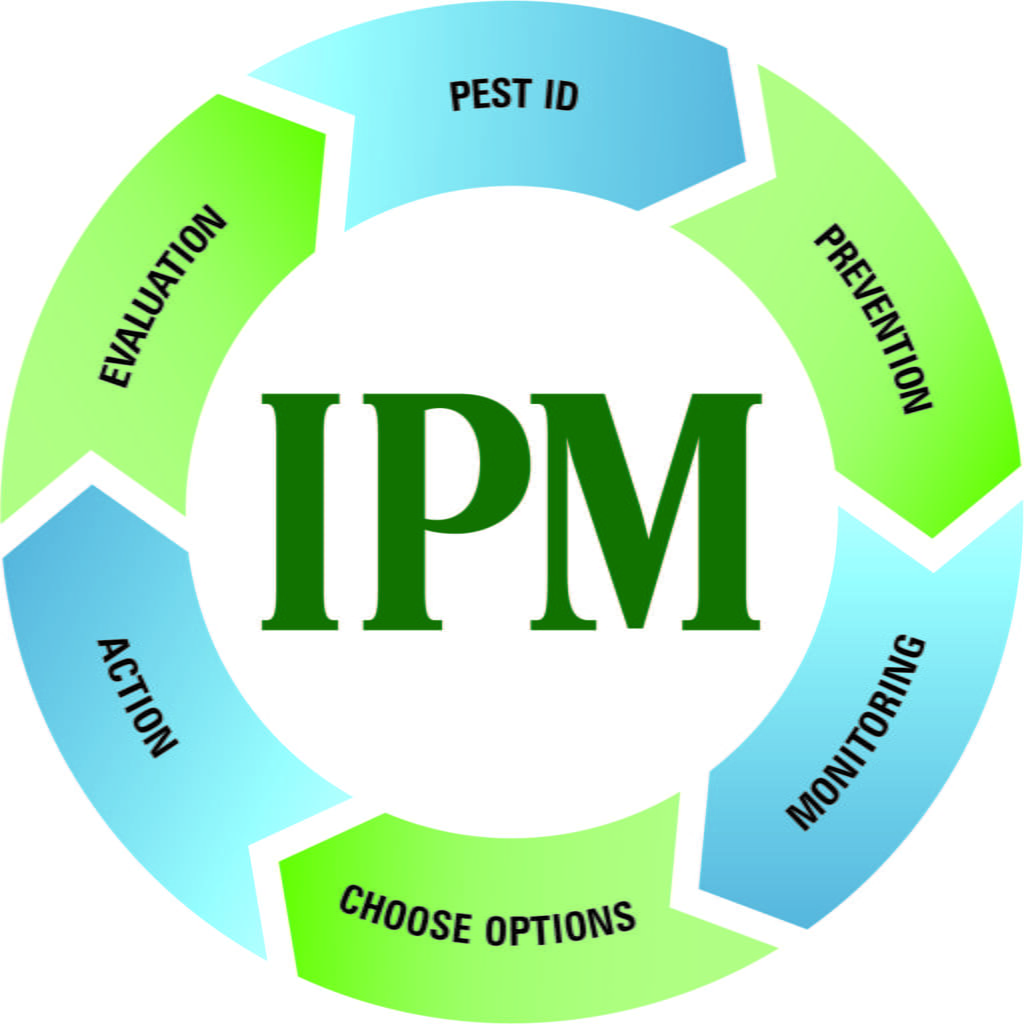
Principles of IPM
1. Prevention: The first step in IPM is to prevent pests from infesting an area.
Preventative measures include sanitation, habitat modification, and exclusion
techniques.
2. Monitoring: Regular monitoring of an area can help identify problems before they
become serious. This includes inspecting for signs of pest activity, such as droppings,
damage to structures, or insect-related odors.
3. Identification: Proper identification of the pest is essential for the selection of the
most effective control method.
4. Action Threshold: The action threshold is the point at which a pest population is
large enough to require control measures.
5. Control Methods: A variety of physical, biological, and chemical controls can be used
to reduce pest populations. These should be chosen based on the severity of the
infestation, the type of pest, and the environmental conditions.
6. Evaluation: Evaluate the effectiveness of the control methods used and adjust if
necessary.
Process Integrated pest management (IPM)
It is an environmentally- friendly approach to pest control that focuses on using natural, sustainable methods to manage and eliminate pests. IPM involves identifying pest populations and the factors that contribute to them, monitoring pest activity, and then implementing the most effective and least disruptive control methods. The process of IPM typically includes the following steps:
1. Identification of the pest: Identify the type of pest and determine their population levels.
2. Evaluation of the environment: Evaluate the environment where the pests are present, such as the climate, food sources, and shelter.
3. Monitoring: Monitor the pest population levels and activity, such as their food sources, breeding areas, and nesting sites.
4. Implement control methods: Implement the most effective and least disruptive control methods, such as physical barriers, trapping, and natural predators.
5. Evaluation of results: Evaluate the effectiveness of the control methods and adjust the plan as necessary.
6. Prevention: Implement preventative measures to discourage future pest infestations.
“Great people to work with. Every interaction I have had with Wolverine Pest Services has been a
good experience. Highly recommend!”
